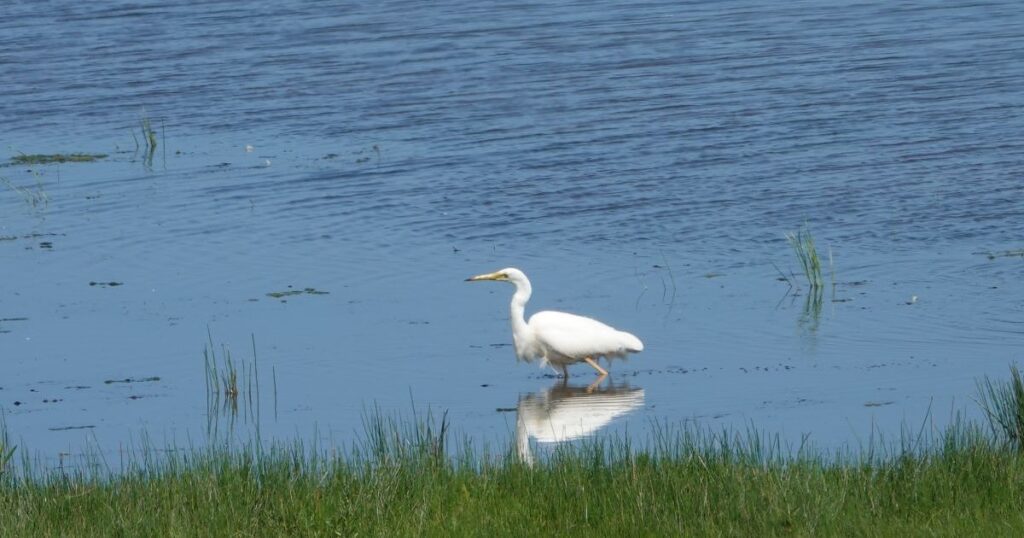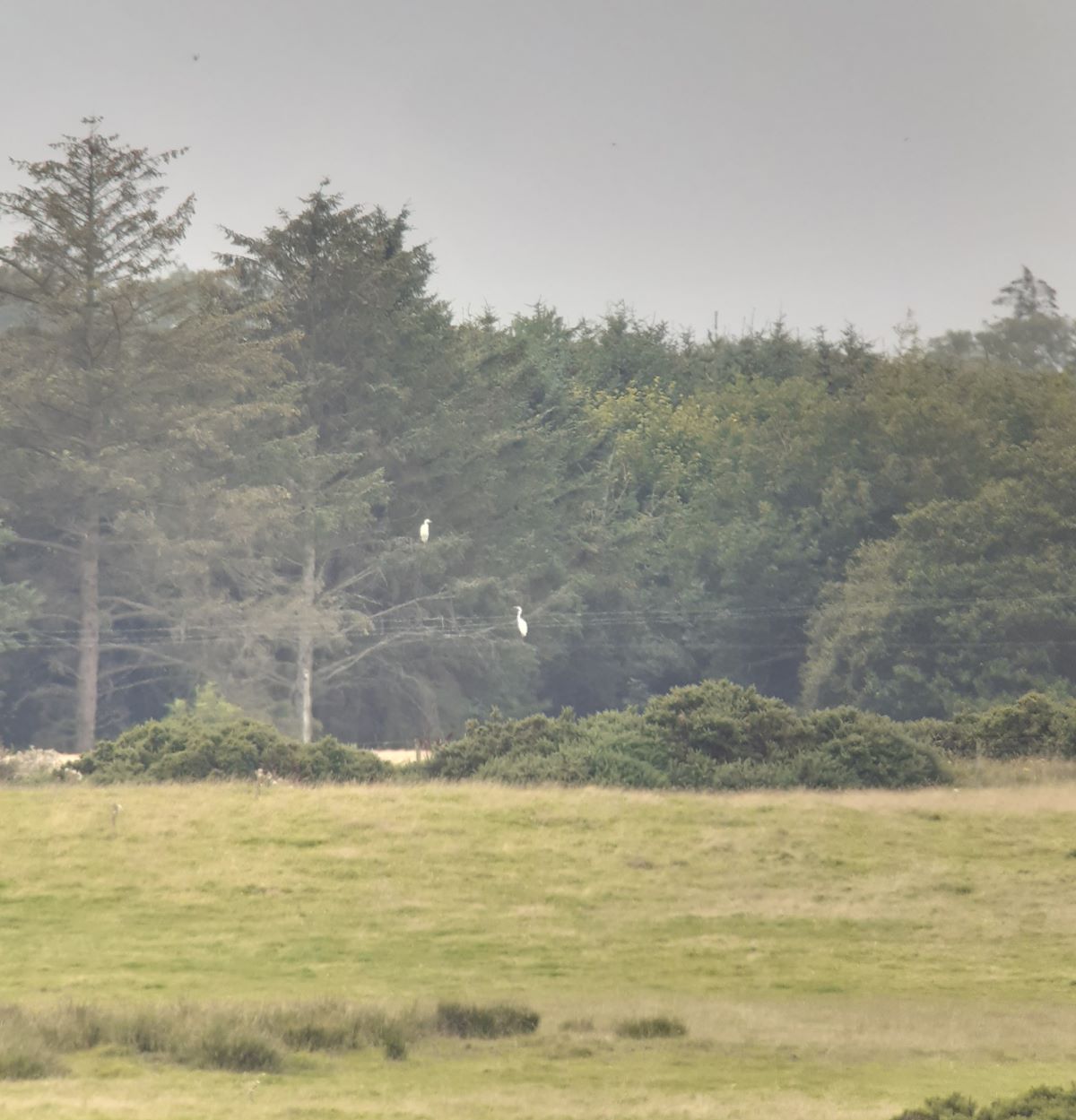
Great White Egrets successfully fledge in Scotland for the first time
Great White Egrets have successfully fledged in Scotland for the first time.
Three chicks left their nest near the Loch of Strathbeg nature reserve near Crimond earlier this week, after what is thought to be the first ever breeding attempt in Scotland.
Conservationists said the successful fledging of the chicks is a significant milestone for the stunning birds.
The large birds are closely related to Grey Herons, with similar long legs and necks, but can be easily recognised by their completely white feathers.
The parents have been regular visitors to the nature reserve for a number of years, and this year they found a perfect nest site at the top of a tree neighbouring RSPB Scotland’s site.
RSPB Scotland staff expect the family to remain on the nature reserve for a few weeks, and then it is possible that some or all of them might remain on site right the way through winter.
‘The adult Great White Egrets have become a regular sight on the nature reserve over the last few years, so we’re really pleased that they’ve chosen to raise a family here this summer,’ said Richard Humpidge, from the nature reserve.

Credit: Allan Perkins
‘It’s exciting to witness the first chicks hatch in Scotland and start to stretch their wings, we’re really lucky to have such great views of them right from the visitor centre.
Great White Egrets used to be occasional visitors to the UK from continental Europe, but over recent decades they have been spreading further north and there are now regular sightings in Scotland.
Their large, beautiful feathers were popular in the fashion industry in the 19th century.
But pioneering efforts from Emily Williamson to stop the killing of birds for their plumage eventually led to the legal ban in 1921, and the start of the organisation that would become the RSPB.
Great White Egrets have also been benefiting from increased protection of the wetland areas they rely on in Europe and the UK, such as Loch of Strathbeg nature reserve.
They hunt by standing still in shallow water, suddenly plunging their long neck into the water to catch small fish and amphibians, and the youngsters have been spotted learning to fish in the marshes with their parents.
Read more Wildlife stories here.
Subscribe to read the latest issue of Scottish Field.
TAGS

